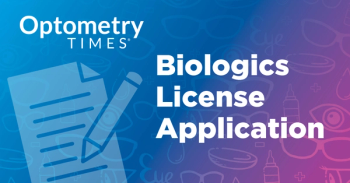
What happened in optometry this week: April 15 - April 19
Catch up on what happened in optometry during the week of April 15-April 19.
Catch up with what Optometry Times shared this week:
Practicing visual accessibility in optometry offices
By Euin Cheong, OD
Ensuring health care accessibility is crucial because it establishes an environment that is approachable for individuals of diverse abilities, including those with vision impairments. Patients with visual impairment frequently encounter difficulty physically maneuvering in and around environments that are not designed to accommodate their unique needs.1 From the moment a patient enters the doors of your practice, they should feel comfortable and able to access the physical space and documented resources they need until the moment they leave to ensure a productive visit.
Study evaluates the potential correlation of ultra-processed food consumption and increased glaucoma incidence
By Martin David Harp, Associate Editor, Ophthalmology Times
A recent study of Spanish university students showed those who intake a higher amount of ultra-processed food (UPF) have a higher risk of developing glaucoma when compared to those with a lower UPF consumption.
You and Eye: Unearthing the true prevalence of keratoconus - with Andrew S. Morgenstern, OD, FAAO, FNAP
By Miriam Korik, OD; Andrew S. Morgenstern, OD, FAAO, FNAP; and Emily Kaiser Maharjan, Assistant Managing Editor
Andrew S. Morgenstern, OD, FAAO, FNAP, joins Dr. Korik to discuss a newly published study on the incidence of keratoconus among pediatric patients in a Chicago-based study. The pair also discuss the International Keratoconus Academy, and Dr. Morgenstern's experience working at Walter Reed Medical Center.
Ocular Therapeutix announces positive topline Phase 1 Data for Axpaxli in DR
By David Hutton
Ocular Therapeutix Inc. today announced positive topline results from the Phase 1 HELIOS study (NCT0569541) evaluating its investigational bioresorbable, hydrogel implant (Axpaxli) versus a sham control in patients with moderately severe to severe non-proliferative diabetic retinopathy without
Study findings show boost of income in first-time wearers of reading glasses
By Jordana Joy, Associate Editor
The Data and Safety Monitoring Board (DSMB) for the Phase 1/2 ArMaDa New research finds that obtaining a pair of reading glasses increases the earnings of people living in low-income communities by 33%. The findings came from the Tradespeople and Hand-workers Rural Initiative for a Vision-enhanced Economy (THRIVE) study, a randomized controlled trial conducted by VisionSpring, BRAC, and Queen’s University Belfast in the United Kingdom, according to a news release. The study involved 824 people from 15 rural districts of Bangladesh.1
Newsletter
Want more insights like this? Subscribe to Optometry Times and get clinical pearls and practice tips delivered straight to your inbox.













































